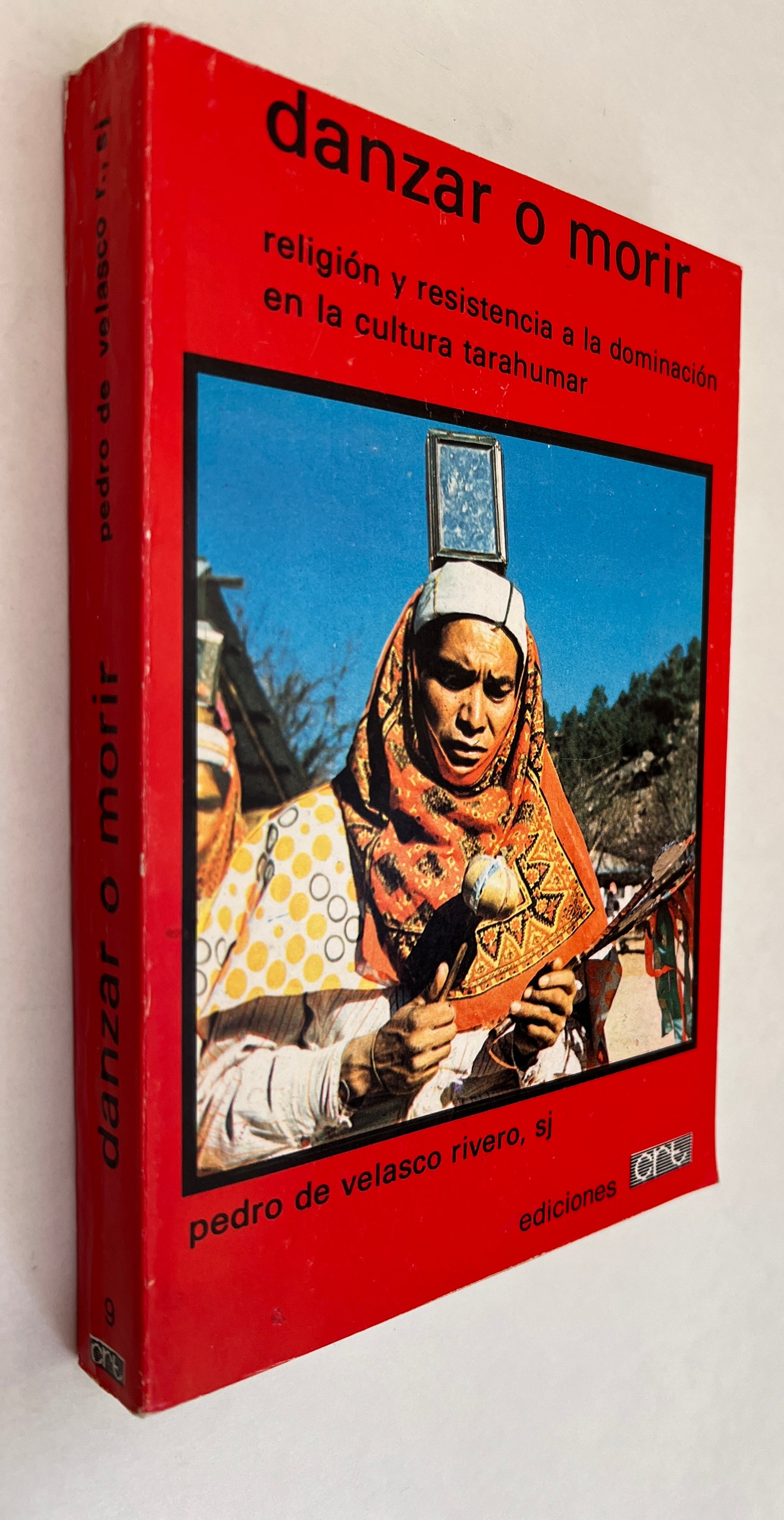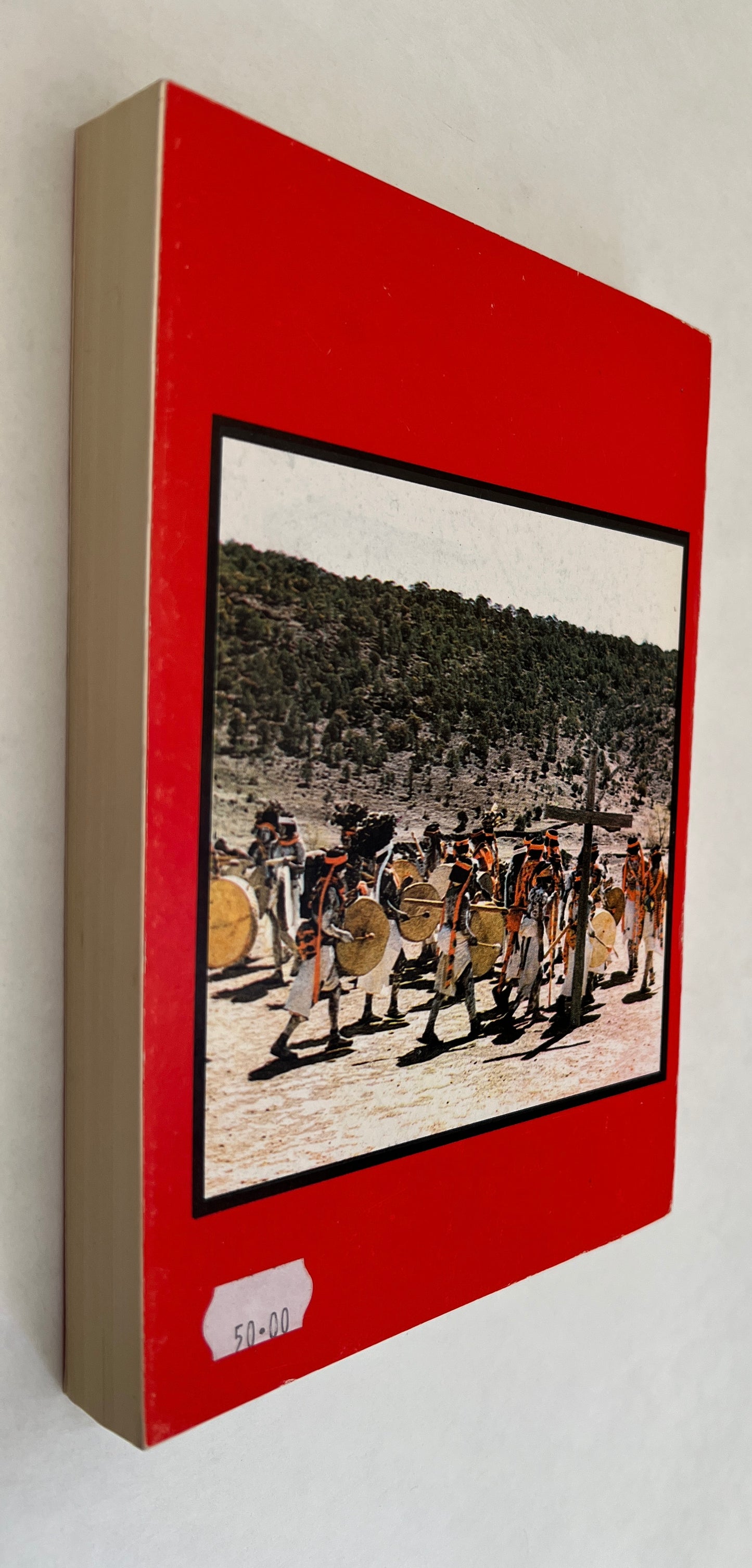Velasco Rivero, Pedro de., SJ
Danzar o Morir: Religión y Resistencia a la Dominación en la Cultura Tarahumara
Danzar o Morir: Religión y Resistencia a la Dominación en la Cultura Tarahumara
Couldn't load pickup availability
México, D.F: Centro de Reflexión Teológica, 1987. 2a ed. Large octavo in illus red stiff paper wraps; 475 pages: illustrations; 21 cm; bibliographical references (pages 397-414). Fine with gentle external wear; appears unread. Paperback.
In Spanish. Only 3,000 copies printed. "The Rarámuri or Tarahumara is a group of Indigenous people of the Americas living in the state of Chihuahua in Mexico. They are renowned for their long-distance running ability. Originally, inhabitants of much of Chihuahua, the Rarámuri retreated to the high sierras and canyons such as the Copper Canyon in the Sierra Madre Occidental on the arrival of Spanish colonizers in the 16th century. The area of the Sierra Madre Occidental which they now inhabit is often called the Sierra Tarahumara because of their presence. Estimates put the Rarámuri population in 2006 at between 50,000 and 70,000 people. Most still practise a traditional lifestyle, including inhabiting natural shelters (caves or cliff overhangs). Staple crops are corn and beans; however, many of the Rarámuri still practise transhumance, raising cattle, sheep, and goats. Almost all Rarámuri migrate from one place to another during the course of a year. The Rarámuri language belongs to the Uto-Aztecan family. Although it is in decline under pressure from Spanish, it is still widely spoken. In the Rarámuri language, the endonymic term rarámuri refers specifically to the men; women are referred to as mukí (individually), and as omugí or igómale (collectively)." Raramuri; Tarahumara Indians -- Government relations. Indians of Mexico -- Chihuahua -- Religion and mythology. Indians of Mexico -- Government relations. Tarahumara -- Relations avec l'État. Indians of Mexico -- Government relations. Indians of Mexico -- Religion. Tarahumara Indians -- Government relations. Religion Northern Mexico
Share




